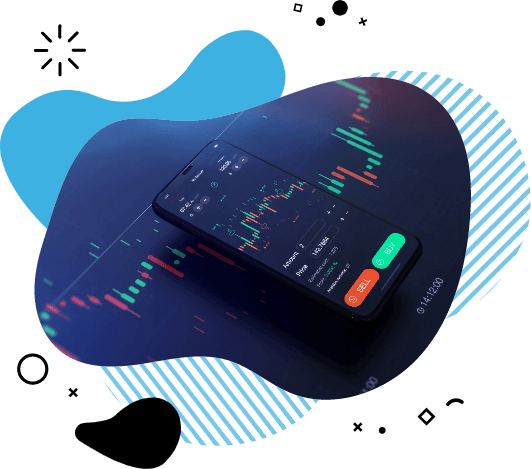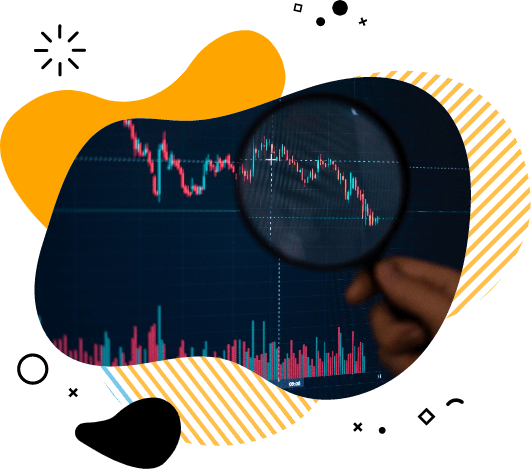
SHARE CFDS
A stock, or equity is a share of a listed company and represents a percentage ownership of that company. These are often referred to as a share or shares. A popular way to gain leveraged exposure to shares is using a share CFD. A contract for difference or CFD over a share, a share CFD will reference the underlying value and attributes of that share without having direct ownership of the share. The other advantage of using a share CFD is that it gives the trader the opportunity to short the share in most cases, this enables the trader to profit when the price is falling.
A share CFD holder will not be able to vote or accept shareholder benefits such as share purchase plans as these relate to having direct ownership of a share. However, any pro-rated entitlements, such as dividends, stock splits, capital returns, and the like, will be passed through.
FairMarkets offers a wide selection of stock CFDs from the UK, US, and European companies.
HOW DO I BUY OR SELL A SHARE CFD?
The process is like buying the underlying shares, and you will be provided with a bid and an offer. This will reflect the underlying price of the share. If you want to buy at the market price, you will take the offer; if you want to sell at the market price, you will take the bid. The offer is the lowest price market participants are willing to sell at, and the bid is the highest price market participants are willing to buy at.
Once your order has been matched with an opposing buyer or seller. The trade will be executed, and this will be confirmed on your platform. You will be using leverage, so the cost to buy or sell this will be a fraction of the underlying value. In most cases, this will be 20%.
Leverage is the main advantage of trading share CFDs. Another advantage is that you can short-share CFDs or profit when the price falls.


STOCK ANALYSIS
The analysis of the future movement of stock prices (a key skill to profiting in the markets) can be divided into two broad camps — fundamental and technical analysis.
Fundamental analysis will attempt to determine the intrinsic value of the stock or instrument based on factors such as economic demand or using discounted cash flows in the case of companies or stocks.
Many variables need to be taken into consideration when understanding an instrument's price action, such as a share. A big holder may need to sell out, which will bring the price down, but at the same time, the company may have announced that it has signed on a big new client pushing earnings up and the company's fundamental value. This means there are no certainties in this game of predicting share price movements.
TECHNICAL ANALYSIS IN TRADING STOCKS
Technical analysis is the process of making predictions about future prices based on historical prices and the patterns that occur. Technicians (people who use technical analysis) believe everything is factored into the price of a security, so all the fundamental factors will eventually be reflected in the price action.
Many subsets or approaches are followed within the technical analysis or the study of price action. These include candle stick patterns, Elliot wave theory, and multiple indicators such as the RSI or MACD. These can be used in combination or alone in trying to predict the future movement of prices. Fairmarkets works with many companies to bring you the latest tools to assist with both types of analysis to give you an edge with your trading.

F.A.Q
What is a dividend?
The stock entitles its holder to share the company’s annual net profit. In the event of a decision to distribute profits at the company’s general assembly, dividends are paid to the shareholders.
Why should I invest in stocks?
The stocks allow the owner to earn high returns both in the short and long term. In addition to the short-term return opportunity, shares have a higher return potential than other investment instruments that are stable, regular, and long-term. There is also the risk of loss in stock trading if the stocks lose value. The stock entitles its holder to share the company’s annual net profit. In the event of a decision to distribute dividends at the company’s general assembly, dividends are paid to the shareholders. There is also the risk of loss in stock trading if the stocks lose value.
How can I open a stock trading account?
You can easily open an investment account on the Fairmarkets website and make stock transactions.
Can I make changes after placing an order?
Improving, worsening, and canceling an order that has yet to be executed in the Exchange can be made. In canceling and worsening transactions, a fee is accrued according to the cancellation commission tariff determined by the Exchange you invest in.
Can I withdraw my money immediately when I sell stocks?
When you sell stocks, the price is transferred to your investment account. When you want to withdraw the amount from your investment account, you can place a transfer order to your bank account. After that, you can transfer the amount to your current account with a value of T+2 (settlement day). (For example, when you place a transfer order on Wednesday, the transfer fee will be transferred to your current account on Friday.)


